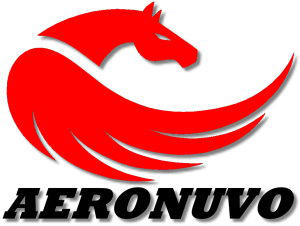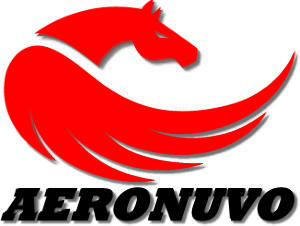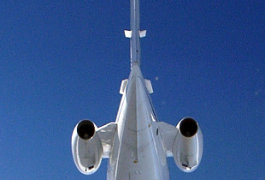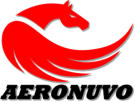
© AERONUVO, The Professional and Expert Aircraft Appraisal and Valuation Services Company - All Rights Reserved 2002-2018


AIRCRAFT APPRAISER ETHICS
AND COMPLIANCE RULES
Service You Can Trust and Count On
Conduct, Management, Confidentiality and Record Keeping
To promote and preserve the public trust inherent in professional appraisal practice, an aircraft appraiser must observe the highest standards of professional ethics. The following Ethics and Compliance Rules are divided into four sections: Conduct, Management, Confidentiality, and Record Keeping. The first three sections apply to all aircraft appraisal practices and all four sections apply to appraisal practice performed under Uniform Standards of Professional Appraisal Practice (USPAP) and membership in the National Aircraft Appraisers Association (NAAA). Since 1980 the NAAA has been the Certification entity and has established the standards and Code of Ethics for professional aircraft appraisers in the United States and abroad. NAAA appraisals are accepted by financial institutions, governement agencies, and the courts as the true value of the aircraft we appraise.Conduct:
Compliance with USPAP is required when the aircraft appraiser is obligated by law or regulation, or by agreement with the client or intended users, to comply. In addition to these requirements, an individual should comply any time that individual represents that AERONUVO is performing an appraisal service. AERONUVO must not misrepresent their role when providing valuation services that are outside of appraisal practice. Honesty, impartiality, and professional competency are required of all appraisers under these Uniform Standards of Professional Appraisal Practice (USPAP). To document recognition and acceptance of his or her USPAP-related responsibilities in communicating an appraisal, appraisal review, or appraisal consulting assignment completed under USPAP, an appraiser is required to certify compliance with USPAP. • An appraiser must perform assignments ethically and competently, in accordance with USPAP. • An appraiser must not engage in criminal conduct. • An appraiser must perform aircraft appraisal assignments with impartiality, objectivity, and independence, and without accommodation of personal interests. • An aircraft appraiser must not advocate the cause or interest of any party or issue. • An aircraft appraiser must not accept an assignment that includes the reporting of predetermined opinions and conclusions. • An aircraft appraiser must not communicate assignment results in a misleading or fraudulent manner. An appraiser must not use or communicate a misleading or fraudulent report or knowingly permit an employee or other person to communicate a misleading or fraudulent report. • An appraiser must not use or rely on unsupported conclusions relating to characteristics such as race, color, religion, national origin, gender, marital status, familial status, age, receipt of public assistance income, handicap, or an unsupported conclusion that homogeneity of such characteristics is necessary to maximize value.Management:
The payment of undisclosed fees, commissions, or things of value in connection with the procurement of an assignment is unethical. Disclosure of fees, commissions, or things of value connected to the procurement of an assignment must appear in the certification and in any transmittal letter in which conclusions are stated. In groups or organizations engaged in appraisal practice, intra-company payments to employees for business development are not considered unethical. Competency, rather than financial incentives, should be the primary basis for awarding an assignment. It is unethical for an appraiser to accept an assignment, or to have a compensation arrangement for an assignment, that is contingent on any of the following: 1. the reporting of a predetermined result (e.g., opinion of value); 2. a direction in assignment results that favors the cause of the client; 3. the amount of a value opinion; 4. the attainment of a stipulated result; or 5. the occurrence of a subsequent event directly related to the appraiser’s opinions and specific to the assignment’s purpose. Advertising for or soliciting assignments in a manner that is false, misleading, or exaggerated is unethical. In groups or organizations engaged in appraisal practice, decisions concerning finder or referral fees, contingent compensation, and advertising may not be the responsibility of an individual appraiser, but for a particular assignment, it is the responsibility of the individual appraiser to ascertain that there has been no breach of ethics, that the assignment is prepared in accordance with these Standards, and that the report can be properly certified when required by Standards Rules.Confidentiality:
• An aircraft appraiser must protect the confidential nature of the appraiser-client relationship. • An aircraft appraiser must act in good faith with regard to the legitimate interests of the client in the use of confidential information and in the communication of assignment results. • An aircraft appraiser must be aware of, and comply with, all confidentiality and privacy laws and regulations applicable in an assignment. • An aircraft appraiser must not disclose confidential information or assignment results prepared for a client to anyone other than the client and persons specifically authorized by the client; state enforcement agencies and such third parties as may be authorized by due process of law; and a duly authorized professional peer review committee except when such disclosure to a committee would violate applicable law or regulation. It is unethical for a member of a duly authorized professional peer review committee to disclose confidential information presented to the committee. • When all confidential elements of confidential information are removed through redaction or the process of aggregation, client authorization is not required for the disclosure of the remaining information, as modified.Record Keeping:
An appraiser must prepare a workfile for each appraisal, appraisal review, or appraisal consulting assignment. The workfile must include: 1. the name of the client and the identity, by name or type, of any other intended users; 2. true copies of any written reports, documented on any type of media; 3. summaries of any oral reports or testimony, or a transcript of testimony, including the appraiser’s signed and dated certification; and 4. all other data, information, and documentation necessary to support the appraiser’s opinions and conclusions and to show compliance with this Rule and all other applicable Standards, or references to the location(s) of such other documentation. • An aircraft appraiser must retain the workfile for a period of at least five (5) years after preparation or at least two (2) years after final disposition of any judicial proceeding in which the appraiser provided testimony related to the assignment, whichever period expires last. • An aircraft appraiser must have custody of his or her workfile, or make appropriate workfile retention, access, and retrieval arrangements with the party having custody of the workfile.
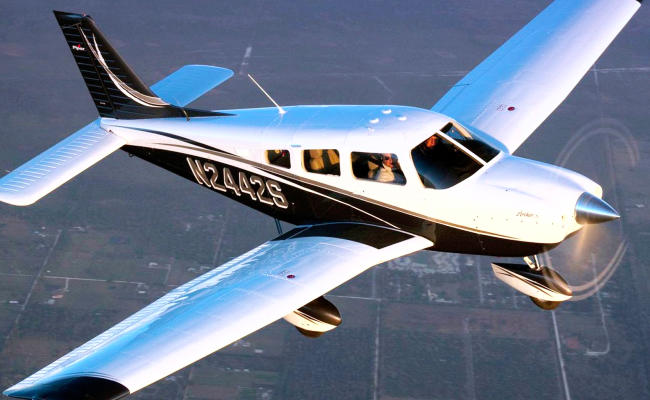
The Aircraft Appraisal
and
Valuation Company
TOLL FREE 844.341.2376

POP UP LAYER 1
Amet veniam dolore voluptate fugiat minim lorem dolor
Est, nulla nisi velit. Do ullamco sunt sint sed. Do tempor veniam non, anim sed et, sint non, fugiat culpa consectetur velit. Cillum fugiat dolor magna aliquip reprehenderit commodo ut, occaecat quis. Eu eiusmod id cupidatat labore exercitation nulla fugiat, sint occaecat ut aliqua? Consectetur cupidatat excepteur proident aliqua lorem commodo eu officia esse nisi. Reprehenderit sunt amet mollit non anim, qui, dolor ea labore ex mollit, labore, exercitation amet dolor dolore. Non ut aliqua eiusmod tempor mollit ut veniam, pariatur anim non aliquip esse irure qui eu voluptate? Nisi lorem cupidatat excepteur elit amet pariatur commodo ad, est officia do. Irure ex dolor cupidatat proident adipisicing.
POP UP LAYER 2
Dolore irure in sunt amet velit in et ex aliqua laboris nisi
Proident, ut laboris veniam, ad ex veniam qui. Nisi veniam incididunt esse reprehenderit fugiat exercitation eu excepteur, pariatur sunt dolor sit. In non aute dolor. Occaecat labore magna cillum cupidatat ipsum, reprehenderit eiusmod: Magna in fugiat elit tempor aliquip pariatur id anim consectetur elit dolor eu ipsum officia incididunt voluptate eiusmod. Et qui ad duis velit amet minim est. Cillum quis reprehenderit nulla excepteur qui sed est nulla. Eu non et cillum aliqua, consectetur sit magna, in dolor lorem ullamco veniam. Tempor in et ut. Enim esse qui tempor nulla irure nostrud eu do non ea commodo voluptate enim anim. Culpa voluptate et ex irure dolore labore aute proident. Est ut in nostrud occaecat id, aliqua ut eu ipsum officia aute elit amet dolor veniam ut culpa sunt. Lorem ut enim magna consequat exercitation ut consectetur. Officia sed nisi aliquip cupidatat? Aliqua magna quis minim.
POP UP LAYER 3
Cillum cupidatat reprehenderit cupidatat
Dolore laboris proident nisi aliquip voluptate cillum occaecat! Dolore cillum lorem ut minim ea sunt ut deserunt aliquip ut eiusmod proident nisi ex? Labore velit consectetur labore cillum fugiat incididunt amet ullamco laboris mollit cillum ut occaecat dolore ipsum dolore enim? Labore, aliquip amet mollit ad. Minim ea, commodo non commodo aute ex. Ea labore enim. Ad sint reprehenderit ut laboris anim minim non commodo cillum, sed aute, deserunt ut dolor amet est labore anim. Non incididunt ea sed labore eu culpa proident sunt ea, sunt anim, cillum dolore, proident incididunt ea. Deserunt labore culpa tempor est commodo aliqua, ut dolore. Pariatur veniam, non tempor consequat reprehenderit officia dolore ullamco, ex ad incididunt eiusmod dolore? Ut culpa minim consectetur, eu ad quis, nisi voluptate, ad nisi, consequat laboris.
AIRCRAFT APPRAISER ETHICS AND COMPLIANCE
RULES
Service You Can Trust and Count On
Conduct, Management, Confidentiality and Record Keeping
To promote and preserve the public trust inherent in professional appraisal practice, an aircraft appraiser must observe the highest standards of professional ethics. The following Ethics and Compliance Rules are divided into four sections: Conduct, Management, Confidentiality, and Record Keeping. The first three sections apply to all aircraft appraisal practices and all four sections apply to appraisal practice performed under Uniform Standards of Professional Appraisal Practice (USPAP) and membership in the National Aircraft Appraisers Association (NAAA). Since 1980 the NAAA has been the Certification entity and has established the standards and Code of Ethics for professional aircraft appraisers in the United States and abroad. NAAA appraisals are accepted by financial institutions, governement agencies, and the courts as the true value of the aircraft we appraise.Conduct:
Compliance with USPAP is required when the aircraft appraiser is obligated by law or regulation, or by agreement with the client or intended users, to comply. In addition to these requirements, an individual should comply any time that individual represents that AERONUVO is performing an appraisal service. AERONUVO must not misrepresent their role when providing valuation services that are outside of appraisal practice. Honesty, impartiality, and professional competency are required of all appraisers under these Uniform Standards of Professional Appraisal Practice (USPAP). To document recognition and acceptance of his or her USPAP-related responsibilities in communicating an appraisal, appraisal review, or appraisal consulting assignment completed under USPAP, an appraiser is required to certify compliance with USPAP. • An appraiser must perform assignments ethically and competently, in accordance with USPAP. • An appraiser must not engage in criminal conduct. • An appraiser must perform aircraft appraisal assignments with impartiality, objectivity, and independence, and without accommodation of personal interests. • An aircraft appraiser must not advocate the cause or interest of any party or issue. • An aircraft appraiser must not accept an assignment that includes the reporting of predetermined opinions and conclusions. • An aircraft appraiser must not communicate assignment results in a misleading or fraudulent manner. An appraiser must not use or communicate a misleading or fraudulent report or knowingly permit an employee or other person to communicate a misleading or fraudulent report. • An appraiser must not use or rely on unsupported conclusions relating to characteristics such as race, color, religion, national origin, gender, marital status, familial status, age, receipt of public assistance income, handicap, or an unsupported conclusion that homogeneity of such characteristics is necessary to maximize value.Management:
The payment of undisclosed fees, commissions, or things of value in connection with the procurement of an assignment is unethical. Disclosure of fees, commissions, or things of value connected to the procurement of an assignment must appear in the certification and in any transmittal letter in which conclusions are stated. In groups or organizations engaged in appraisal practice, intra-company payments to employees for business development are not considered unethical. Competency, rather than financial incentives, should be the primary basis for awarding an assignment. It is unethical for an appraiser to accept an assignment, or to have a compensation arrangement for an assignment, that is contingent on any of the following: • the reporting of a predetermined result (e.g., opinion of value); • a direction in assignment results that favors the cause of the client; • the amount of a value opinion; • the attainment of a stipulated result; or • the occurrence of a subsequent event directly related to the appraiser’s opinions and specific to the assignment’s purpose. • Advertising for or soliciting assignments in a manner that is false, misleading, or exaggerated is unethical. In groups or organizations engaged in appraisal practice, decisions concerning finder or referral fees, contingent compensation, and advertising may not be the responsibility of an individual appraiser, but for a particular assignment, it is the responsibility of the individual appraiser to ascertain that there has been no breach of ethics, that the assignment is prepared in accordance with these Standards, and that the report can be properly certified when required by Standards Rules.Confidentiality:
An aircraft appraiser must protect the confidential nature of the appraiser-client relationship. An aircraft appraiser must act in good faith with regard to the legitimate interests of the client in the use of confidential information and in the communication of assignment results. An aircraft appraiser must be aware of, and comply with, all confidentiality and privacy laws and regulations applicable in an assignment. An AERONUVO aircraft appraiser must not disclose confidential information or assignment results prepared for a client to anyone other than the client and persons specifically authorized by the client; state enforcement agencies and such third parties as may be authorized by due process of law; and a duly authorized professional peer review committee except when such disclosure to a committee would violate applicable law or regulation. It is unethical for a member of a duly authorized professional peer review committee to disclose confidential information presented to the committee. When all confidential elements of confidential information are removed through redaction or the process of aggregation, client authorization is not required for the disclosure of the remaining information, as modified.Record Keeping:
An appraiser must prepare a workfile for each appraisal, appraisal review, or appraisal consulting assignment. The workfile must include: • the name of the client and the identity, by name or type, of any other intended users; • true copies of any written reports, documented on any type of media; • summaries of any oral reports or testimony, or a transcript of testimony, including the appraiser’s signed and dated certification; and • all other data, information, and documentation necessary to support the appraiser’s opinions and conclusions and to show compliance with this Rule and all other applicable Standards, or references to the location(s) of such other documentation. An aircraft appraiser must retain the workfile for a period of at least five (5) years after preparation or at least two (2) years after final disposition of any judicial proceeding in which the appraiser provided testimony related to the assignment, whichever period expires last. An aircraft appraiser must have custody of his or her workfile, or make appropriate workfile retention, access, and retrieval arrangements with the party having custody of the workfile.

- Aircraft Appraised
- Airports Served
- Aircraft Bluebook Report
- Cessna Aircraft Appraisals
- Beechcraft Aircraft Appraisals
- Mooney Aircraft Appraisals
- Piper Aircraft Appraisals
- Aero Commander Aircraft Appraisals
- American Champion Appraisals
- Aviat Husky & Pitts Appraisals
- Cirrus Aircraft Appraisals
- CubCrafters Aircraft Appraisals
- Daher Socata Aircraft Appraisals
- Diamond Aircraft Appraisals
- Glasair Aircraft Appraisals
- Grumman Aircraft Appraisals
- Lancair Aircraft Appraisals
- Luscombe Aircraft Appraisals
- Maule Aircraft Appraisals
- Rockwell Commander Aircraft Appraisals
- Stinson Aircraft Appraisals


- Aircraft in Divorce Settlements
- Insurance and the Aircraft Appraisal
- Appraisal Definitions
- What Is An Aircraft Appraisal Report
- Aircraft Fair Market Values
- Aircraft Appraiser Ethics
- Aircraft Engine Appraisal Terms
- Rent, Lease, Purchase Guide
- Aircraft Loan Process Checklist
- Critical Factors for Appraisals
- Selling Your Aircraft Guide
- IRS Tax Deductions Aircraft Appraisals
- Maintenance and the Appraiser
- Required FAA Records Review
- AERONUVO Web Site Map

© AERONUVO, The Professional and Expert Aircraft
Appraisal and Valuation Services Company - All Rights
Reserved 2002-2018

AIRCRAFT APPRAISER
ETHICS
AND COMPLIANCE RULES
Service You Can Trust and Count
On
Conduct, Management,
Confidentiality and Record Keeping
To promote and preserve the public trust inherent in professional appraisal practice, an aircraft appraiser must observe the highest standards of professional ethics. The following Ethics and Compliance Rules are divided into four sections: Conduct, Management, Confidentiality, and Record Keeping. The first three sections apply to all aircraft appraisal practices and all four sections apply to appraisal practice performed under Uniform Standards of Professional Appraisal Practice (USPAP) and membership in the National Aircraft Appraisers Association (NAAA). Since 1980 the NAAA has been the Certification entity and has established the standards and Code of Ethics for professional aircraft appraisers in the United States and abroad. NAAA appraisals are accepted by financial institutions, governement agencies, and the courts as the true value of the aircraft we appraise.Conduct:
Compliance with USPAP is required when the aircraft appraiser is obligated by law or regulation, or by agreement with the client or intended users, to comply. In addition to these requirements, an individual should comply any time that individual represents that AERONUVO is performing an appraisal service. AERONUVO must not misrepresent their role when providing valuation services that are outside of appraisal practice. Honesty, impartiality, and professional competency are required of all appraisers under these Uniform Standards of Professional Appraisal Practice (USPAP). To document recognition and acceptance of his or her USPAP-related responsibilities in communicating an appraisal, appraisal review, or appraisal consulting assignment completed under USPAP, an appraiser is required to certify compliance with USPAP. • An appraiser must perform assignments ethically and competently, in accordance with USPAP. • An appraiser must not engage in criminal conduct. • An appraiser must perform aircraft appraisal assignments with impartiality, objectivity, and independence, and without accommodation of personal interests. • An aircraft appraiser must not advocate the cause or interest of any party or issue. • An aircraft appraiser must not accept an assignment that includes the reporting of predetermined opinions and conclusions. • An aircraft appraiser must not communicate assignment results in a misleading or fraudulent manner. An appraiser must not use or communicate a misleading or fraudulent report or knowingly permit an employee or other person to communicate a misleading or fraudulent report. • An appraiser must not use or rely on unsupported conclusions relating to characteristics such as race, color, religion, national origin, gender, marital status, familial status, age, receipt of public assistance income, handicap, or an unsupported conclusion that homogeneity of such characteristics is necessary to maximize value.Management:
The payment of undisclosed fees, commissions, or things of value in connection with the procurement of an assignment is unethical. Disclosure of fees, commissions, or things of value connected to the procurement of an assignment must appear in the certification and in any transmittal letter in which conclusions are stated. In groups or organizations engaged in appraisal practice, intra-company payments to employees for business development are not considered unethical. Competency, rather than financial incentives, should be the primary basis for awarding an assignment. It is unethical for an appraiser to accept an assignment, or to have a compensation arrangement for an assignment, that is contingent on any of the following: 1. the reporting of a predetermined result (e.g., opinion of value); 2. a direction in assignment results that favors the cause of the client; 3. the amount of a value opinion; 4. the attainment of a stipulated result; or 5. the occurrence of a subsequent event directly related to the appraiser’s opinions and specific to the assignment’s purpose. Advertising for or soliciting assignments in a manner that is false, misleading, or exaggerated is unethical. In groups or organizations engaged in appraisal practice, decisions concerning finder or referral fees, contingent compensation, and advertising may not be the responsibility of an individual appraiser, but for a particular assignment, it is the responsibility of the individual appraiser to ascertain that there has been no breach of ethics, that the assignment is prepared in accordance with these Standards, and that the report can be properly certified when required by Standards Rules.Confidentiality:
• An aircraft appraiser must protect the confidential nature of the appraiser- client relationship. • An aircraft appraiser must act in good faith with regard to the legitimate interests of the client in the use of confidential information and in the communication of assignment results. • An aircraft appraiser must be aware of, and comply with, all confidentiality and privacy laws and regulations applicable in an assignment. • An aircraft appraiser must not disclose confidential information or assignment results prepared for a client to anyone other than the client and persons specifically authorized by the client; state enforcement agencies and such third parties as may be authorized by due process of law; and a duly authorized professional peer review committee except when such disclosure to a committee would violate applicable law or regulation. It is unethical for a member of a duly authorized professional peer review committee to disclose confidential information presented to the committee. • When all confidential elements of confidential information are removed through redaction or the process of aggregation, client authorization is not required for the disclosure of the remaining information, as modified.Record Keeping:
An appraiser must prepare a workfile for each appraisal, appraisal review, or appraisal consulting assignment. The workfile must include: 1. the name of the client and the identity, by name or type, of any other intended users; 2. true copies of any written reports, documented on any type of media; 3. summaries of any oral reports or testimony, or a transcript of testimony, including the appraiser’s signed and dated certification; and 4. all other data, information, and documentation necessary to support the appraiser’s opinions and conclusions and to show compliance with this Rule and all other applicable Standards, or references to the location(s) of such other documentation. • An aircraft appraiser must retain the workfile for a period of at least five (5) years after preparation or at least two (2) years after final disposition of any judicial proceeding in which the appraiser provided testimony related to the assignment, whichever period expires last. • An aircraft appraiser must have custody of his or her workfile, or make appropriate workfile retention, access, and retrieval arrangements with the party having custody of the workfile.
The Aircraft Appraisal and
Valuation Company
Toll Free: 844.341.2376


- Home
- About AERONUVO
- Our Services
- Cessna Aircraft Appraisals
- Beechcraft Aircraft Appraisals
- Mooney Aircraft Appraisals
- Piper Aircraft Appraisals
- Virginia Airports Served
- Pennsylvania Airports Served
- West Virginia Airports Served
- Delaware Airports Served
- Maryland Airports Served
- North Carolina Airports Served
- Contact Us
